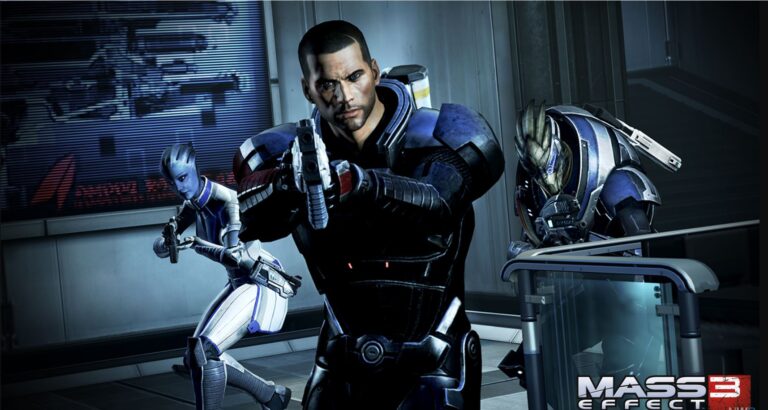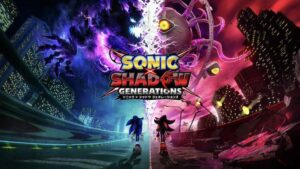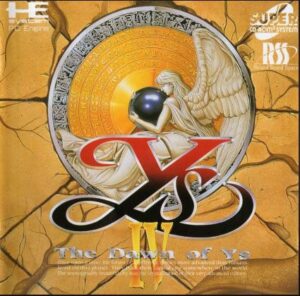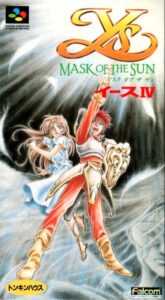Well, here we are at the end of the line for the original trilogy. Mass Effect as a trilogy has touched millions upon millions of gamers around the world. Mass Effect 3 itself was a highly anticipated game and many couldn’t wait to get their hands on it. Let us wait no longer to dive in. This is Mass Effect 3!
Introduction & Pre-Production
Following the massive critical and financial success of Mass Effect 2 along with its cliffhanger ending, many people were no doubt looking forward to what was to come in the game’s inevitable sequel. And in fact early development of Mass Effect 3 began before the release of its previous installment. Casey Hudson once again served as project director to finish out the trilogy. The game would also be singular in its production as Microsoft Game Studios, which had published the first two games, was uninvolved. We saw Mass Effect 3 being released for multiple platforms, ending this game’s traditional Xbox console exclusivity, which the first two installments had been initially released under.
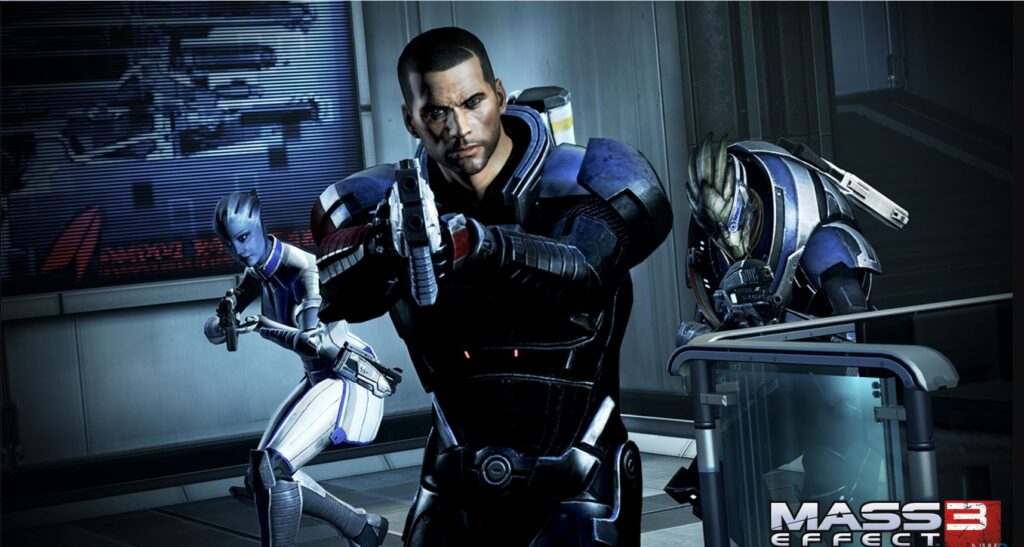
Mass Effect 3 saw release in the 1st quarter of 2012 after being delayed from its initially planned 2011 release. The game was being developed near the end of Xbox 360’s and PlayStation 3’s life cycles. With this knowledge in hand Bioware focused more on refining the systems and mechanics in Mass Effect 2 instead of pushing the hardware to its limits. The second installment brought many changes to the Mass Effect formula, and this led to a mixed reception on some of those mechanics. Casey Hudson wanted to improve the new player experience, as well as make it one of the best shooters on the market whilst still bringing RPG mechanics to the table in a way that fans of both RPGs and shooters could enjoy.
We will get into the writing aspect of the change in production later on, but a key staff change was made early on in Mass Effect 3’s development as Drew Karpyshyn, lead narrative designer left the series to work on Star Wars: The Old Republic, and would soon depart Bioware altogether. Karpyshyn had long been a part of Bioware’s writing staff as he was responsible for writing both Mass Effect 1 & 2 as well as Knights of the Old Republic. His replacement on the project was Mac Walters who would go on to serve as Bioware’s narrative lead for over a decade before he too left the company. We will have plenty to discuss on this narrative change in direction when we get to the narrative portion of this article.
The music team was completely overhauled as we have six composers for Mass Effect 3. We have the returning Sam Hullick, but also plenty of new talent in Cris Velasco, Clint Mansell, Christopher Lennertz, and Sascha Dikkicyan who is better known as Sonic Mayhem. The game was produced by Jesse Houston with programming and art direction overseen by David Falkner and Derek Watts respectively. The game was released on March 6, 2012 for Xbox 360 and PlayStation 3, with a Wii U port being released in November of the same year. Mass Effect 3 was also bundled with the rest of the trilogy and released in 2021 as Mass Effect Legendary Edition.
Synopsis & Writing
Mass Effect 3 is set in the year 2186, a full year after the ending of Mass Effect 2 and Commander Shepard’s victory over the Collectors abducting colonists on the fringes of settled space. Commander Shepard had since parted ways with Cerberus and is now held under arrest on Earth for his connection to Cerberus or the events of Mass Effect 2’s DLC add-on Arrival. More on that later.
Stripped of his authority, his vessel, and comrades, Shepard should finally have a moment to relax. However, this is short lived as the moment that Shepard and his allies have long dreaded has finally come to pass. The Reapers have arrived, quickly laying siege to Earth, conquering it in no time at all. Shepard narrowly escapes the planet with his mission set in stone. That mission being none other than saving the entire galaxy from complete annihilation. If Shepard fails not only all of humanity, but the entire galaxy will become extinct as well…
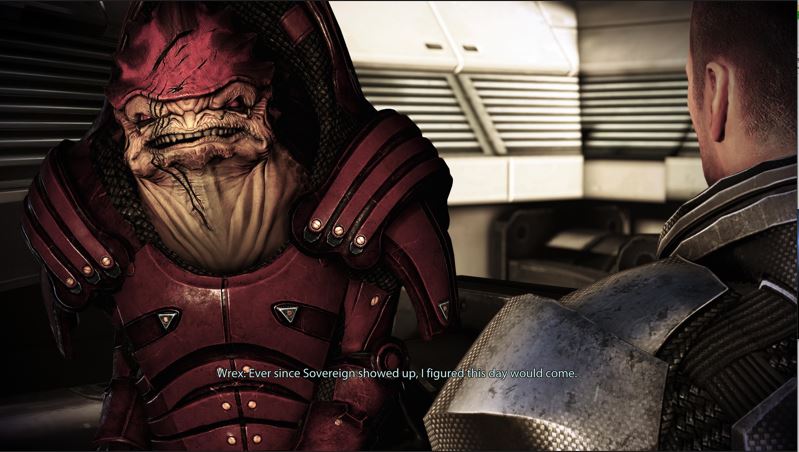
Mass Effect 3 wastes no time in showcasing what the player is up against and what your objective is. Bioware had been building up the arrival of the Reapers and their significance since 2007 in Mass Effect 1 and its quite an event to finally see them arrive en masse. The entire trilogy had been building up to this threat and having the whole game dedicated to fighting them promises a scale of conflict we had never seen in the series.
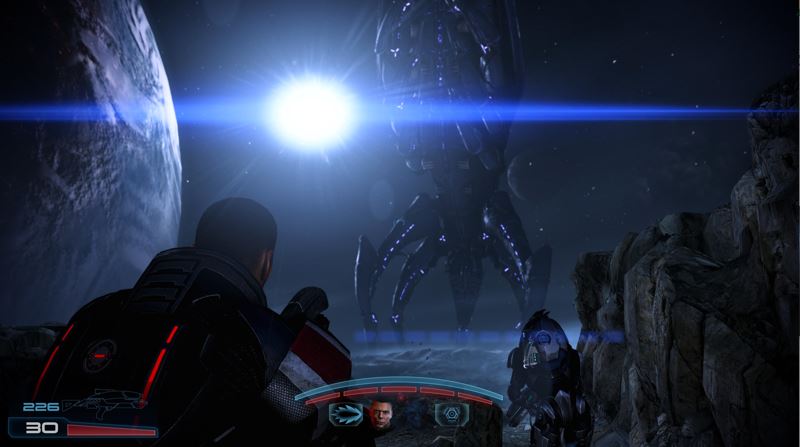
Naturally, at the end of the Mass Effect trilogy, Bioware attempted to bring an end to many longstanding story and character arcs. Be it the Genophage with the Krogan and Turian conflict or the war between the Quarians and the Geth, Mass Effect 3 seeks to bring a satisfying conclusion to it all. The keyword here is “attempts.” The sheer scale of this conflict was designed in a way that brings these long-standing conflicts to the forefront and their resolution is more a means to end in combatting the threat of the Reapers.
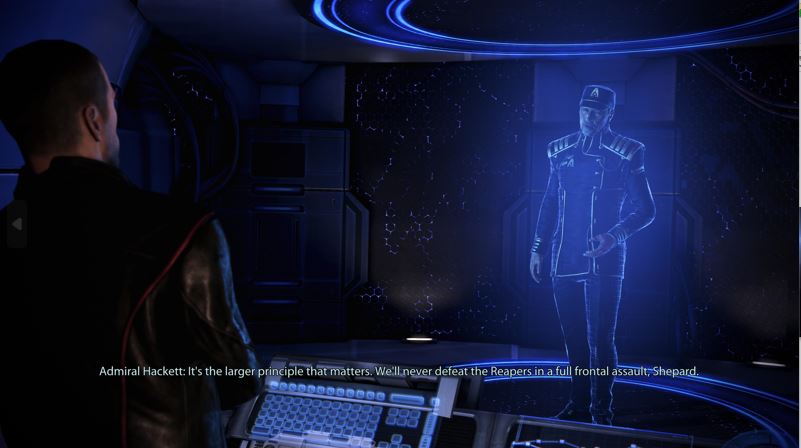
The writing of Mass Effect 3 is at the heart of the controversies surrounding the game. The story endured a number of redrafts on top of having a new writing team. Several different endings were considered and later abandoned in favor of the ending that shipped. In November 2011 a private beta leaked onto Xbox Live that spoiled several plot elements, forcing Bioware to change several aspects of the plot at the last minute. The ending in particular drew much criticism for the state it was released in for being a deus ex machina that lacked a proper buildup in addition to throwing out the choices that players had made throughout the trilogy.

However, to say Mass Effect 3’s writing problems are solely because of its ending is untrue as there was a lot going on under the surface that affected the overall narrative quality. The game itself had built up the importance of player choices and the characters we had met. Mass Effect 3 however at several instances, shows a disregard for the choices that players had made. Mass Effect 1 saw players make the choice of whether or not to save the Rachni from extinction, Mass Effect 3 sees the continuation of that plot thread in a mission that has the player save the Rachni Queen from the Reapers. However, if you killed the Queen in the original game you are given the same mission in which the Reapers have instead artificially engineered a Rachni abomination. The actual Queen and this abomination share the exact same model and the interactions are virtually identical to the point where players are hardly able to tell the difference between them.
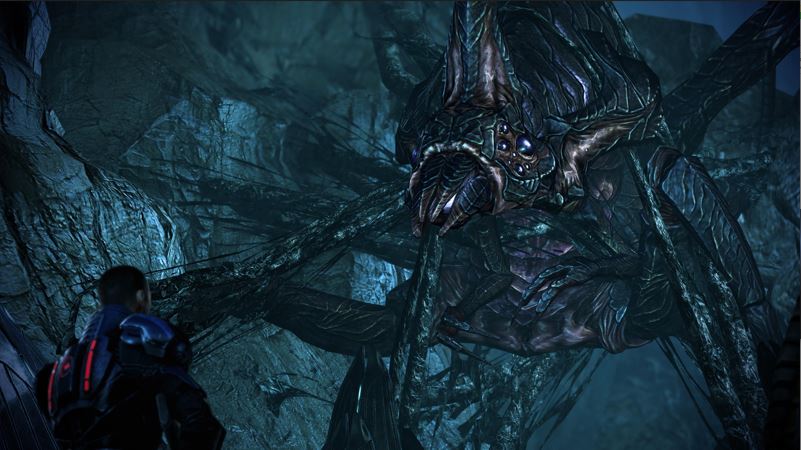
Similarly, Mass Effect 3 continues the trend of killing off fan-favorite characters off-screen. The Asari researcher, Rana Thanoptis that players had interacted with and potentially saved, is killed off-screen here. Similarly, the Quarian marine Kal Reegar is killed off-screen in a last stand against Reaper forces. Both of these deaths of long-standing characters are communicated to players through an optional email that is easily skimmed over. I understand that certain sacrifices had to be made for the sake of writing. But Mass Effect 3 betrays a core tenet of what the series had established itself to be, which emphasized players’ choices and the characters we had all met throughout the trilogy.
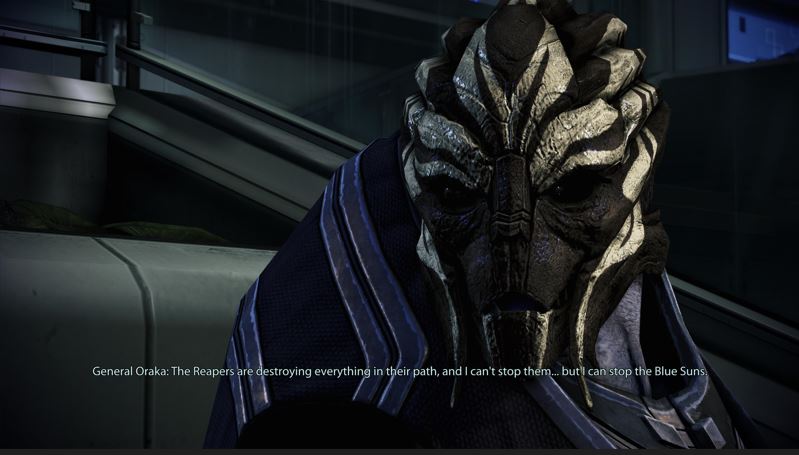
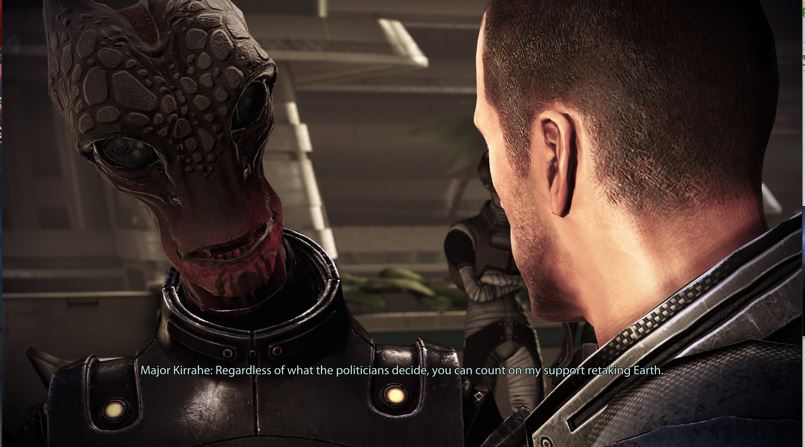
That isn’t to say this game doesn’t pay homage to the decisions you made, because it does do that at times. There are several side quests that feature characters from Shepard’s past adventures. An early game side quest sees you interact with General Septimus Oraka who in Mass Effect 1 was a disgraced drunk. But now he’s cleaned himself up and returned to active duty helping to defend the Citadel. Similarly, the previously mentioned Rachni mission will have you find the body of a Krogan engineer named Charr whose Last Will asks you to find his significant other and pass on news of his death. If you remember correctly this was the very same Krogan that Shepard could choose to help propose to his Asari girlfriend in Mass Effect 2. Moments like these go a long way in making me feel good about the choices I made and their impact on the larger galaxy.
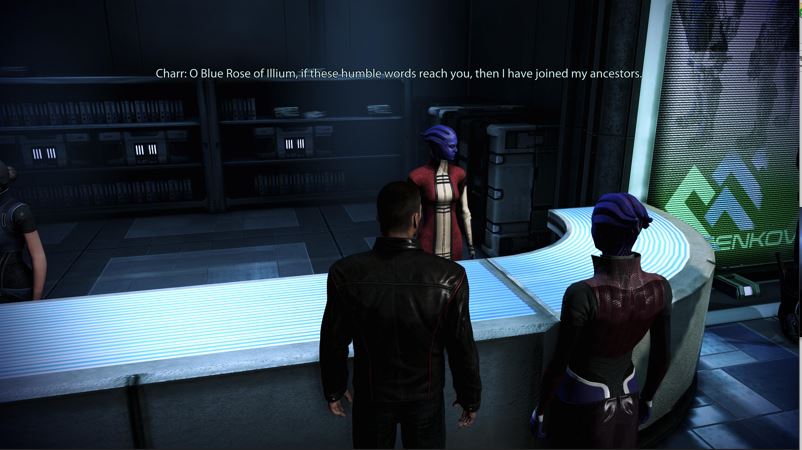
That being said, there are certain choices presented by the developers that make it clear that Bioware wanted you to feel bad about the choices you made. A renegade playthrough will see you kill many old friends across the runtime of Mass Effect 3. The story has a lot of things to juggle and therefore struggled to involve all of Shepard’s past companions in a meaningful way. Certain companions are tied to the main conflict and by extension, the main missions.
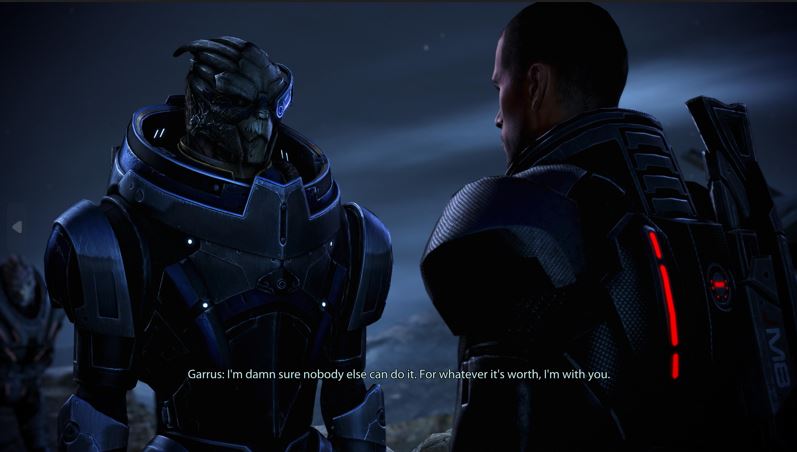
If alive, Wrex is an integral part of the Genophage conflict arc; same with Legion during the Geth-Quarian War. A vast majority of the companions you don’t recruit are given throwaway missions that don’t move the plot forward, and instead just serve to broaden the scope of the conflict. Following the resolution of said mission they fade into the background until the endgame where they get their farewell with Shepard. The Citadel DLC add-on would serve to give players meaningful send offs with their old companions.
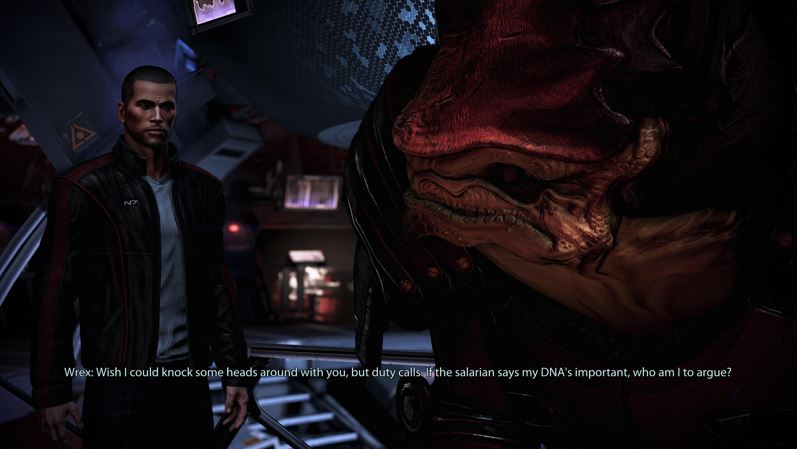
Speaking of DLCs, the Mass Effect 2 add-on acts as the prologue to Mass Effect 3 and serves to give a more meaningful reason for Shepard being under arrest at the beginning of the game. Arrival saw the Reapers try to launch a pre-emptive invasion through a Terminus System mass relay, with Shepard only stopping them by destroying said relay, which resulted in the death of over 500,000 Batarians. His arrest is presented as the Alliance military dealing with the issue to avoid war with the Batarians before the Reaper’s arrival. This is a much more fleshed out reason than the likes of Shepard merely being under arrest for suspected connections to Cerberus.
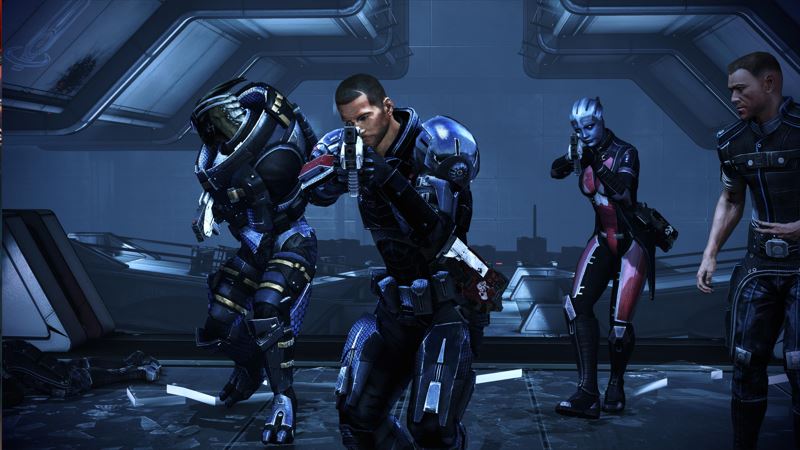
The core of people’s issues with Mass Effect 3 lies in its narrative and how it was handled. This only goes to show how much people cared about the story and the characters within. It was all in the expectations that Bioware had built up over the trilogy. Truly, it may not have been possible to live up to those expectations and as a result Mass Effect 3 rings as a hollow finale in terms of writing with so many missed opportunities and mishandled arcs, which sour the overall experience.
Gameplay
Despite the controversies surrounding the writing of Mass Effect 3 the gameplay was largely an improvement in certain aspects. Let us start with the positive; Bioware took some time to flesh out the shooting mechanics to make them even more engaging. Combat in Mass Effect 1 & 2 was largely formulaic with enemies predictably popping their heads out of cover every few seconds. Mass Effect 3 is a much different story; enemies will now perform more coordinated maneuvers. Bipedal enemies such as Cerberus and the Geth will dodge out of the way of gunfire, use grenades to flush you out, or cover their own approach, and flank you whenever possible. The Reapers will use horde tactics to try and overwhelm you, whilst elite units such as the Banshees or Brutes have the potential to kill you instantly if they get close enough.

Mass Effect 3 also made a critical change to the player’s arsenal in that the player character can make use of any weapon type. Some may view this as a trivialization of the Soldier’s greatest advantage, but there are downsides if you do decide to carry all weapon types. The more weapons you carry the slower your tech and biotic powers can recharge, so certain classes may wish to carry fewer weapons.
Mass Effect 3 also brings weapon modification to the table. Across the game’s runtime you’ll find weapon mods that can alter how a gun performs. If you want enhanced penetration to punch through enemy armor, you can do it. Want to decrease weapon weight? There is a mod for it. The mods serve to make the guns more dynamic and alter how they perform in combat. The game also puts more emphasis on developing your combat skills through a detailed skill tree. Every rank of a new power will have you decide between different perks, which serve to reinforce your particular playstyle. You can truly play the game your way.
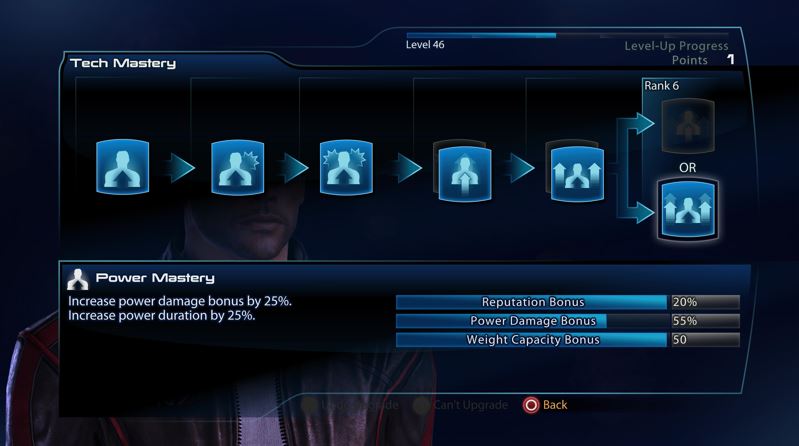
Now that we’ve talked about the good, lets go through the stuff that isn’t so pretty… Mass Effect 2 brought a lot of refinements to the gameplay sandbox that enhanced the shooting mechanics and made them even more enjoyable. One could argue that this came at the cost of the original game’s finely tuned RPG mechanics, that Mass Effect’s identity had shifted from an RPG with shooter mechanics to a shooter with RPG mechanics, and that Mass Effect 3 falls into similar trappings. True, there were refinements on both the shooter and RPG sides of the fence, but most of the refinements obviously went to the shooting mechanics, as the RPG mechanics received much less attention comparatively.
Most of this game’s resources went toward the development of main missions as well as N7 missions, which more or less served as the tie-ins for the multiplayer mode of which we will discuss in greater detail in a separate article. Much of Mass Effect 3’s side content are fetch quests that Shepard doesn’t even have an active role in acquiring.
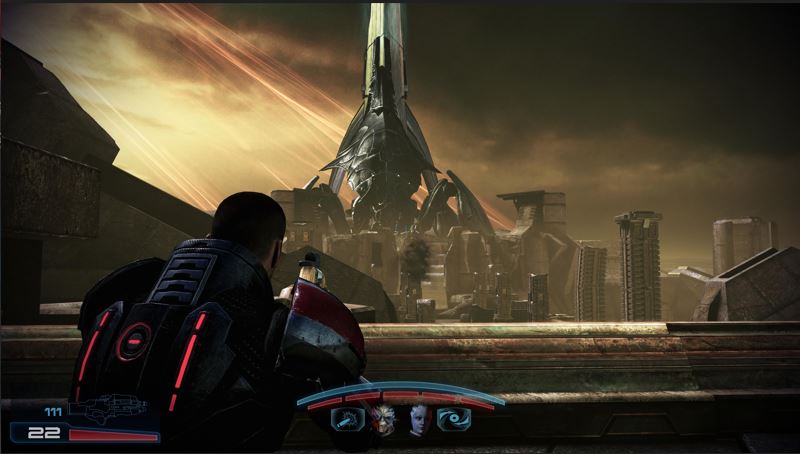
The context for many of the side quests is that Shepard overhears NPCs talking on the Citadel about an artifact of some importance. You then go scan a planet and retrieve the item in question before bringing it back for a credit and a war asset reward. This is rather shallow in its execution. Rarely are you given an optional objective to complete whilst on a priority mission. They occur so infrequently that they are the exception not the rule.
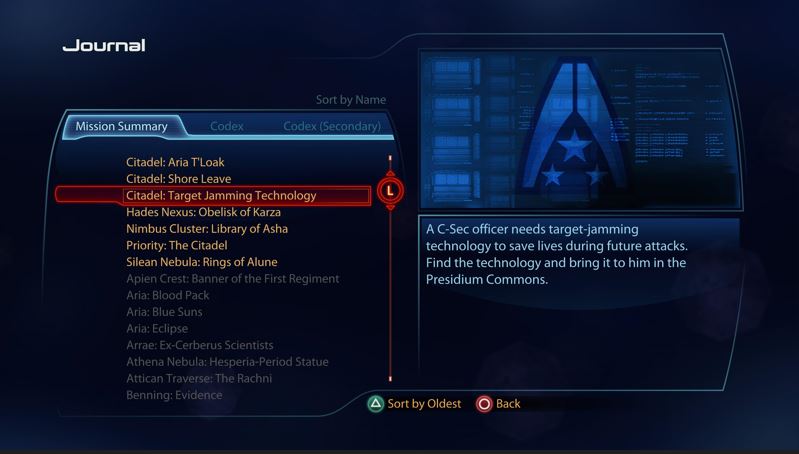
The biggest casualty of lost RPG mechanics has to be the downgrading of the journal. In previous entries the journal was highly detailed and broke down the objectives step-by-step. But this is not the case for Mass Effect 3 as the journal does not update. It doesn’t matter if you’ve gone to the location listed and retrieved the quest item, the journal will only tell you to go to the location without any further details. It is so shallow in comparison to previous games that I couldn’t believe it came from the studio renowned for RPGs. The quest journal of Knights of the Old Republic puts this to complete shame and that game was nearly shy of a decade old at the point of Mass Effect 3’s release.
Conclusion
At its core I don’t believe Mass Effect 3 is a reprehensible mess of a game, it just seems to be plagued by conflicting design issues that diminish the core experience. Expectations are largely at the heart of people’s issue with the game, and I do admit that I personally find this game lacking in certain aspects. As a pure gameplay experience I feel that Mass Effect 3 is the most refined, but in those refinements it lost a part of what the first two entries in the series are beloved for. And its for those reasons that I find this the weakest game in the trilogy. I can see how Bioware wanted to make this game the best it could be, but that ambition somewhat sabotaged the project, between the loss of key talent, polarizing design choices in gameplay, and narrative. Mass Effect 3 more or less marked the beginning of the decline of Bioware in the eyes of the general public, moving it into the state we see the company in today.
It is very telling that the most positive thing we can attribute to modern Bioware is that they could remaster the Mass Effect trilogy. With Mass Effect 4 in the development window and the loss of the staff who made the series what it was, the future of the series looks uncertain. I however can find respite in the fact the Mass Effect trilogy despite its flaws has held up extraordinarily well and remains one of the most beloved trilogies in gaming. Stay tuned as we look at multiplayer and DLC add-ons next time!
Patron Shout-Out
Special thanks to our loyal Patreon supporters who help make our content possible. Sincere thanks goes out to:
Francesco
Lisa

